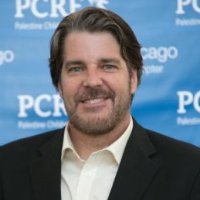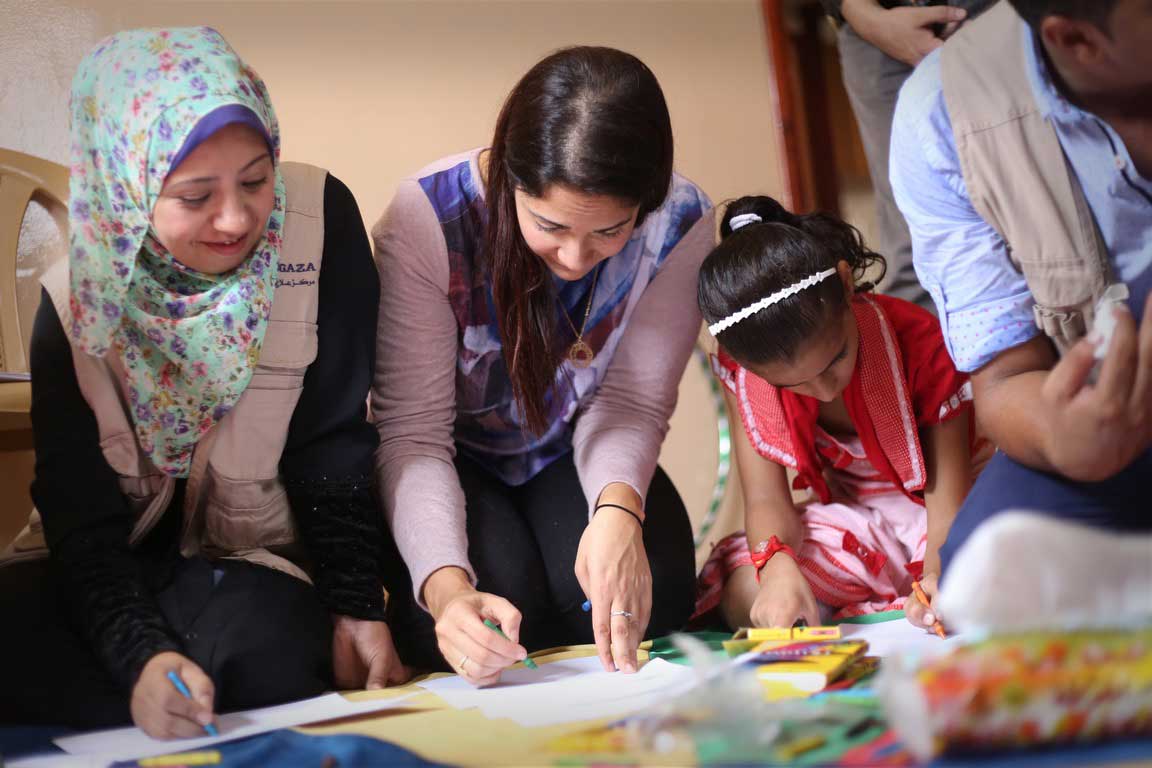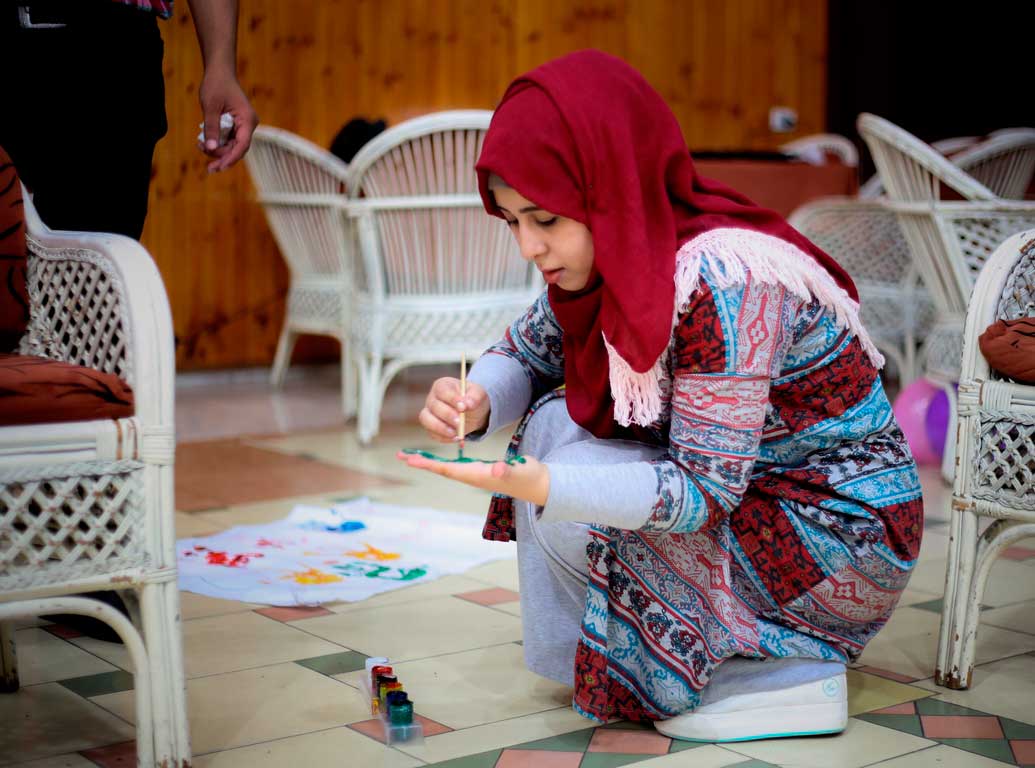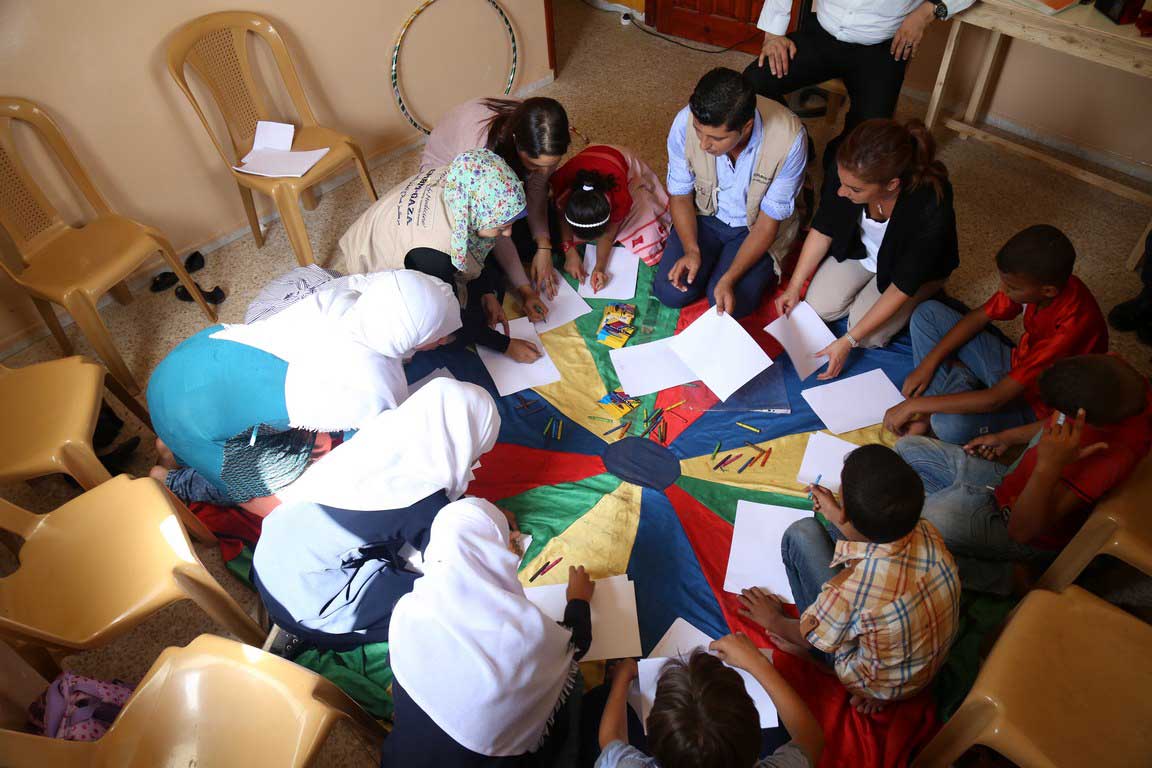Steve Sosebee of PCRF – helping children without regard to politics

by Denise Nanni and Milena Rampoldi, ProMosaik.
In the following our interview with Steve Sosebee of the organization PCRF,
The Palestine Children’s Relief Fund, supporting children in the West Bank and
in Gaza. ProMosaik stands for Palestinian rights. Palestinians also live in
camps outside their homeland in our Middle Eastern countries. Also there the
organisation PCRF helps them in the medical field. On its website the
organisation declares: “Our goal is to ensure that, every child in Gaza
fighting cancer, has the chance to get the care that they need locally, without regard to politics, religion or money.”
In the following our interview with Steve Sosebee of the organization PCRF,
The Palestine Children’s Relief Fund, supporting children in the West Bank and
in Gaza. ProMosaik stands for Palestinian rights. Palestinians also live in
camps outside their homeland in our Middle Eastern countries. Also there the
organisation PCRF helps them in the medical field. On its website the
organisation declares: “Our goal is to ensure that, every child in Gaza
fighting cancer, has the chance to get the care that they need locally, without regard to politics, religion or money.”
How do you identify and select the children
that could benefit from your organization?
that could benefit from your organization?
We
have a variety of ways to identify children in need of treatment throughout the
Middle East.
the world to the Middle East who see children who need surgery they otherwise
cannot get locally and refer them to us, as well as through our field workers
who see children during their work throughout the West Bank, Lebanon, Gaza and
Jordan.
who refer patients to us for treatment, and other NGOs.
people online refer children to us who need help.
different sources, we are able to provide surgery for thousands of Arab
children throughout the Middle East each year, in all subspecialties,
regardless of their race, religion or nationality.
have a variety of ways to identify children in need of treatment throughout the
Middle East.
the world to the Middle East who see children who need surgery they otherwise
cannot get locally and refer them to us, as well as through our field workers
who see children during their work throughout the West Bank, Lebanon, Gaza and
Jordan.
who refer patients to us for treatment, and other NGOs.
people online refer children to us who need help.
different sources, we are able to provide surgery for thousands of Arab
children throughout the Middle East each year, in all subspecialties,
regardless of their race, religion or nationality.

How many are the hospitals that you currently
assist, by sending volunteers?
assist, by sending volunteers?
We
work in many hospitals all over the Middle East, including Jenin Hospital,
Rafidiah Hospital, Tulkarem Hospital, The Palestine Medical Complex in
Ramallah, Makassed Hospital in Jerusalem, Beit Jala Hospital, Alia Hospital in
Hebron, Shifa Hospital in Gaza, Al Aqsa Hospital in Deir El Balah, the European
Gaza Hospital, El Hamshiry in Saida, Safad Hospital in Badawi refugee camp and
Haifa Hospital in Beirut.
work in many hospitals all over the Middle East, including Jenin Hospital,
Rafidiah Hospital, Tulkarem Hospital, The Palestine Medical Complex in
Ramallah, Makassed Hospital in Jerusalem, Beit Jala Hospital, Alia Hospital in
Hebron, Shifa Hospital in Gaza, Al Aqsa Hospital in Deir El Balah, the European
Gaza Hospital, El Hamshiry in Saida, Safad Hospital in Badawi refugee camp and
Haifa Hospital in Beirut.
Do you carry on capacity building projects? If
yes, in what ways?
yes, in what ways?
Yes,
we provide training for local doctors to improve their area of expertise,
including currently a hand surgeon who we provided a fellowship from Palestine
to train in India, and many other training courses and workshops for local
doctors.
hospitals.
in Nablus, we provided sterilization machines for Gaza Hospitals, we are
partnering with other NGOs to build a dialysis hospital in Northern Lebanon, we
are building pediatric cardiac programs in Ramallah and Gaza, and most of all
we are taking on the issue of Palestinian children with cancer by building
departments in the West Bank (here) and also a new
one for the children of Gaza (here).
other projects are designed to help build the capacity of the local health care
providers to better serve their patients.
we provide training for local doctors to improve their area of expertise,
including currently a hand surgeon who we provided a fellowship from Palestine
to train in India, and many other training courses and workshops for local
doctors.
hospitals.
in Nablus, we provided sterilization machines for Gaza Hospitals, we are
partnering with other NGOs to build a dialysis hospital in Northern Lebanon, we
are building pediatric cardiac programs in Ramallah and Gaza, and most of all
we are taking on the issue of Palestinian children with cancer by building
departments in the West Bank (here) and also a new
one for the children of Gaza (here).
other projects are designed to help build the capacity of the local health care
providers to better serve their patients.

How do you ensure the social inclusion of
children in need of mental health care?
children in need of mental health care?
We
have a pediatric mental health project for children who are impacted by the
wars and siege in Gaza, the most at-risk children suffering from PTSD and other
anxiety, and hundreds of children are being supporter with their families
through our program, which is in cooperation with the
the Gaza Community Mental health Programme.
other support for children and their families in need.
have a pediatric mental health project for children who are impacted by the
wars and siege in Gaza, the most at-risk children suffering from PTSD and other
anxiety, and hundreds of children are being supporter with their families
through our program, which is in cooperation with the
the Gaza Community Mental health Programme.
other support for children and their families in need.
Do you cooperate with any local authority or
instutution? If yes, how?
instutution? If yes, how?
We
have many partnerships and cooperate with too many organizations to name, but
as a start the World Health Organization, The United Nations, and dozens of
partners in the USA, Europe, the Middle East and so on, all of which must be
vetted to ensure that they are not political and are working for the sake of
helping children.
as terrorist organizations.
have many partnerships and cooperate with too many organizations to name, but
as a start the World Health Organization, The United Nations, and dozens of
partners in the USA, Europe, the Middle East and so on, all of which must be
vetted to ensure that they are not political and are working for the sake of
helping children.
as terrorist organizations.



